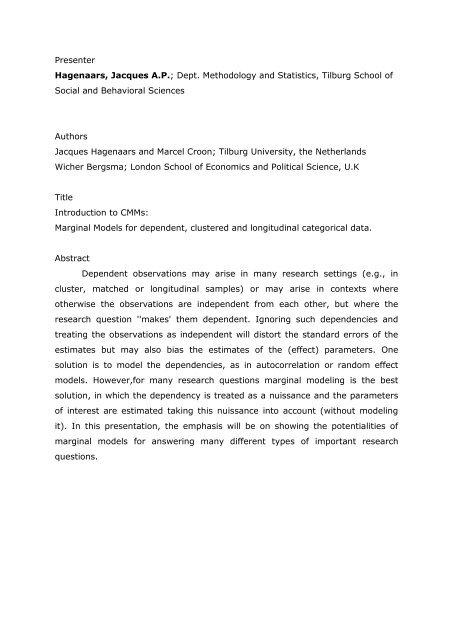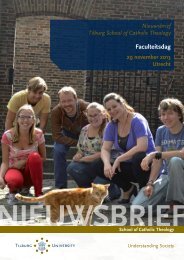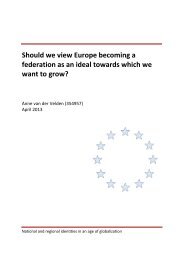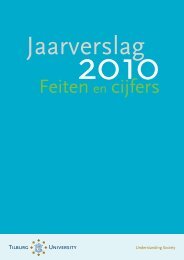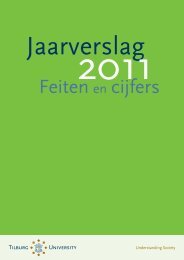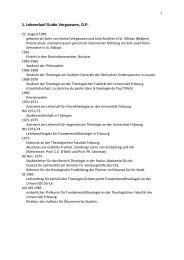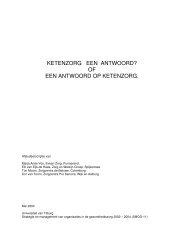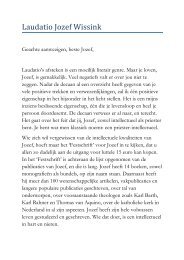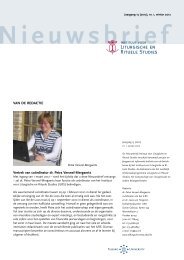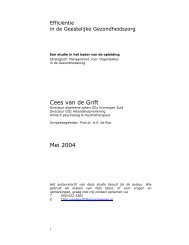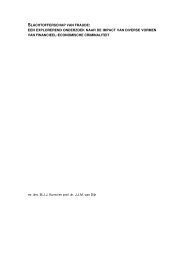Here - Tilburg University
Here - Tilburg University
Here - Tilburg University
Create successful ePaper yourself
Turn your PDF publications into a flip-book with our unique Google optimized e-Paper software.
Presenter<br />
Hagenaars, Jacques A.P.; Dept. Methodology and Statistics, <strong>Tilburg</strong> School of<br />
Social and Behavioral Sciences<br />
Authors<br />
Jacques Hagenaars and Marcel Croon; <strong>Tilburg</strong> <strong>University</strong>, the Netherlands<br />
Wicher Bergsma; London School of Economics and Political Science, U.K<br />
Title<br />
Introduction to CMMs:<br />
Marginal Models for dependent, clustered and longitudinal categorical data.<br />
Abstract<br />
Dependent observations may arise in many research settings (e.g., in<br />
cluster, matched or longitudinal samples) or may arise in contexts where<br />
otherwise the observations are independent from each other, but where the<br />
research question ''makes' them dependent. Ignoring such dependencies and<br />
treating the observations as independent will distort the standard errors of the<br />
estimates but may also bias the estimates of the (effect) parameters. One<br />
solution is to model the dependencies, as in autocorrelation or random effect<br />
models. However,for many research questions marginal modeling is the best<br />
solution, in which the dependency is treated as a nuissance and the parameters<br />
of interest are estimated taking this nuissance into account (without modeling<br />
it). In this presentation, the emphasis will be on showing the potentialities of<br />
marginal models for answering many different types of important research<br />
questions.


